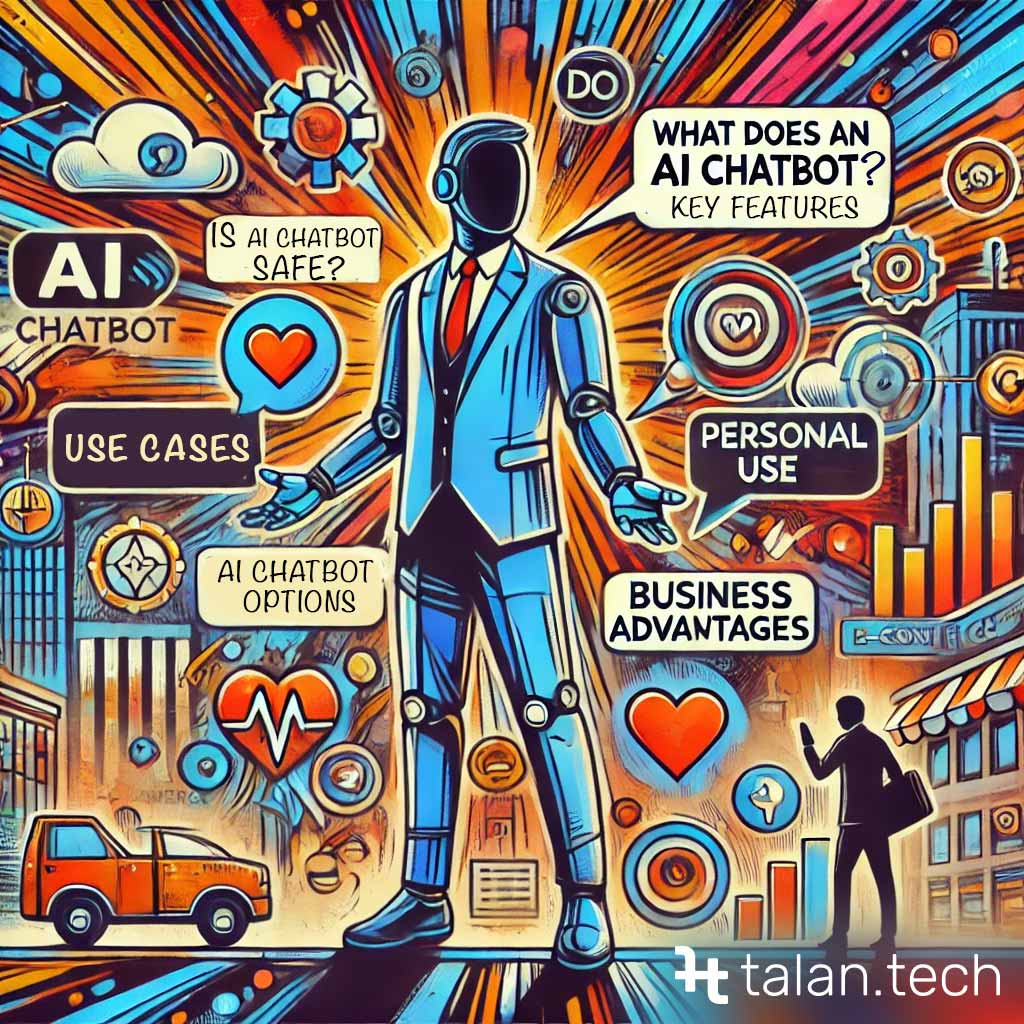In our previous article, we explored the basics of AI chatbot, covering their key components and types. Now, we continue to delve deeper into the fundamental functions and concepts of AI chatbots. These intelligent systems are increasingly vital in automating tasks, enhancing customer interactions, and providing valuable insights across various industries. Understanding what an AI chatbot does is essential to appreciate their growing impact on both business and personal use.
Core Functions of AI Chatbot
AI chatbot performs a variety of functions that make them invaluable tools for both businesses and individuals.
- Customer Interaction and Support: One of the primary roles of an AI chatbot is to handle customer interactions. They can respond to queries, resolve issues, and provide information quickly and efficiently, improving customer satisfaction and engagement.
- Data Collection and Analysis: they can collect and analyze data from user interactions, providing valuable insights for businesses. This data can be used to improve services, tailor marketing strategies, and enhance user experience.
- Task Automation: Chatbot AI can automate repetitive tasks such as scheduling appointments, sending reminders, and processing orders. This automation saves time and reduces the workload on human employees, allowing them to focus on more complex tasks.
In fact, unlike traditional chatbots that rely on pre-programmed responses, AI-powered chatbots leverage machine learning and natural language processing to understand and respond to user inputs dynamically.
Main and Key Features of AI Chatbot for Business Operations
- 24/7 Availability: they are available round-the-clock, providing consistent and reliable customer support without the limitations of human working hours. This ensures that customers can get assistance whenever they need it.
- Multichannel Support: Modern AI chatbots can operate across multiple channels including websites, mobile apps, social media, and messaging platforms. This multichannel presence ensures that businesses can engage with customers on their preferred platforms.
- Personalization and Customer Insights: By leveraging data and machine learning, AI chatbots can offer personalized interactions. They can remember customer preferences, past interactions, and purchase history to provide tailored responses and recommendations.
- Scalability: they can handle a large volume of interactions simultaneously, making them highly scalable solutions for businesses of all sizes. This scalability is particularly useful during peak times or when there is a sudden spike in customer inquiries.
- Integration Capabilities: AI chatbots can integrate with various business systems such as CRM, ERP, and e-commerce platforms. This integration allows for seamless data flow and improved operational efficiency.
- Advanced Analytics and Reporting: AI assistants come with advanced analytics and reporting features that provide insights into customer behavior, chatbot performance, and business metrics. This data can be used to refine strategies and improve overall business operations.
Is AI Chatbot Safe?
The safety and security of AI chatbots are crucial considerations, particularly when handling sensitive information.
- Data Privacy and Security Measures: Reputable chatbot GPT models and other AI chatbots implement stringent data privacy and security protocols to protect user information. Encryption, secure data storage, and compliance with privacy regulations are standard practices.
- Ethical Considerations: The development and deployment of AI chatbots should adhere to ethical guidelines, ensuring that they do not perpetuate biases or misuse data.
- Trust and Transparency: Building trust with users involves transparency about how AI chatbots operate and how data is used. Clear communication and user consent are essential components of this process.
What is the Best AI for Personal Use?
Choosing the best AI chatbot for personal use depends on individual needs and preferences. Here are some key considerations and popular options:
- Criteria for Personal AI Chatbots: The best personal AI chatbots should be user-friendly, secure, and capable of performing the tasks you require. They should integrate well with other devices and services you use.
- Popular AI Chatbot Options: Some of the top-rated personal AI chatbots include:
- ChatGPT: Developed by OpenAI, it uses GPT-3.5, GPT-4, GPT-4о and offers advanced conversational abilities, making it versatile for various tasks from content creation to coding support.
- Gemini (formerly Google Bard): Known for its creativity and speed, Gemini is free to use and integrates well with Google services.
- Claude: Created by Anthropic, Claude excels in handling large inputs and document reviews, making it suitable for enterprise applications.
- Bing Chat: Integrated with Microsoft’s Bing search engine, this chatbot is great for retrieving information and providing real-time, comprehensive responses.
- Jasper: Ideal for content creation, Jasper uses GPT-3 and GPT-4 to generate high-quality written content and offers various templates for different writing needs.
- Use Cases for Personal AI Chatbots:
- Scheduling and Reminders: Conversational agents can help manage your daily schedule by setting reminders, scheduling appointments, and organizing tasks.
- Information Retrieval: they can quickly retrieve information and answer questions on a wide range of topics, making them useful for students and professionals who need quick access to information.
- Content Creation: Chatbots can generate written content, including blog posts, emails, and reports, using advanced NLP to ensure the content is coherent and grammatically correct.
- Smart Home Management: Intelligent assistants can control smart home systems, allowing you to manage lighting, temperature, security systems, and more through voice commands.
- Language Translation and Learning: AI chatbots can assist with language translation and learning, offering real-time translation services and providing practice and feedback for language learners.
- Health and Fitness Tracking: Some conversational agents are integrated with health and fitness apps to track physical activity, provide workout recommendations, and monitor dietary habits.
- Entertainment and Leisure: Automated assistants can provide entertainment by playing music, recommending movies, or engaging in casual conversation.
Conclusion
AI chatbots play a significant role in modern business operations by automating tasks, integrating with existing systems, and providing personalized user interactions. Understanding what an AI chatbot does and how it can be safely and effectively implemented is crucial for any business looking to stay competitive. As technology continues to advance, the capabilities and applications of AI chatbots will expand, making them even more indispensable. Further articles will reveal more aspects in more detail so that your understanding of the world expands.





